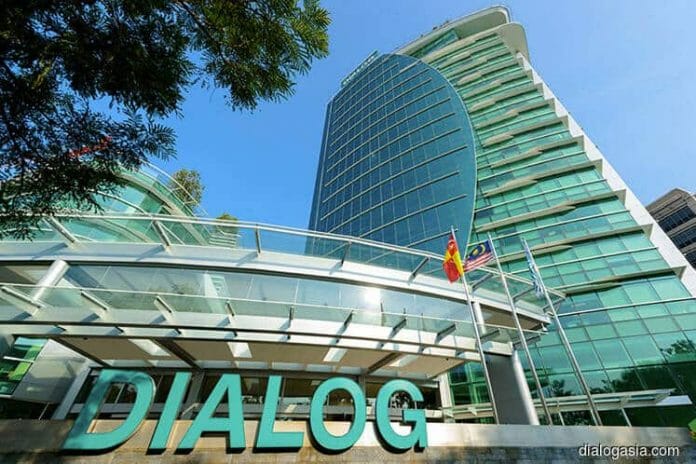Kenanga Investment Bank (Kenanga) maintains an OVERWEIGHT rating on the Oil & Gas sector following a meeting with the Malaysia OSV Owners Association (MOSVA), from which they derived four key insights;
(i) the local OSV market is expected to stay tight from 2024 to 2026,
(ii) there is a significant shortfall in local OSV supply, exacerbated by increasing demand from Petronas,
(iii) banks are beginning to open up to financing new OSV vessel purchases, potentially spurring increased capex from vessel operators, and
(iv) while daily charter rates (DCR) for accommodation work barges and boats have reached levels seen in 2013-2014, DCR for Anchor Handling Tug Supply (AHTS) vessels remains 30%-40% lower. The absence of fleet expansion among local players suggests that the OSV market has not yet peaked, supporting our continued bullish outlook on the OSV subsegment.
Kenanga, in a Sector Update today (May 2) said their sector top picks are DIALOG (OP; TP: RM3.10), YINSON (OP; TP: RM3.47) and KEYFIELD (OP; TP: RM1.90).
Key takeaways of the meeting with the Malaysia OSV Owners Association (MOSVA) and as follows:-
1. The Malaysian OSV market is anticipated to remain tight from 2024 to 2026, with increasing demand from Petronas positioning it as a market favourable to vessel owners in the near to medium-term. Since the peak of the cycle in 2014, many local OSV owners have been in survival mode, primarily due to a drop in DCR driven by declining Brent crude prices. Since then, MOSVA noted that there has been a noticeable absence of new vessel additions among Malaysian listed players, as the industry focused on deleveraging their balance sheets.
Since 2014, local OSV operators have minimised spending on fleet renewals and expansions, keeping the overall Malaysian fleet size similar to what it was nearly a decade ago. This restraint in investment reflects the sector’s response to volatile oil prices and lower charter rates.
2. Petronas, to sustain its production levels, requires a minimum of 200 vessels for support. With the expected increase in demand, this number could rise to 300 vessels operating in Malaysian waters in 2024 and onwards.
However, the current fleet under the MOSVA totals only 270 vessels, and it’s unclear how many of these are currently cold-stacked and potentially not viable for service return. This situation points to a significant shortfall in available OSV capacity, underscoring the tightness of the market and the potential for upward pressure on charter rates.
Hence, MOSVA anticipates a robust DCR outlook in the general OSV market in 2024 and 2025, particularly for the locally -flagged vessels.
3. Banks are also starting to consider financing for new OSV vessel builds albeit still at an early stage recently due to the pickup in demand for OSV.
This will be a boon for the local OSV players from 2024 until 2023, local OSV players have constantly faced huge difficulties in securing sufficient debt financing for newly built OSV vessels due to industry outlook uncertainty as well as ESG concerns.
Nevertheless, the economics for newly built vessels have improved significantly due to the huge uptick in DCR and coupled with 2024-2025 demand outlook from Petronas, banks are starting to warm up to the idea of financing vessels again after a lull in the last decade.
This provides flexibility for existing OSV players as they will be able to secure more financing to renew and potentially expand their OSV fleet to better capitalise on the ongoing up-cycle in the local OSV market.
4. In 2024, the DCR for non-dynamic positioning two (DP2) enabled accommodation work barges and workboats (AWB) are expected to range from RM90,000 to RM100,000, matching the peak levels of the previous cycle in 2013-2014.
AHTS vessels with a 6,000 bhp bollard pull are anticipated to fetch RM30,000 to RM35,000 per day, doubling the rates from 2021-2022.
Higher capacity AHTS vessels (10,000-12,000 bhp bollard pull) are currently commanding around RM60,000 per day for 2024.
Despite these increases, the AHTS sub-segment spot market remains 30%-40% below its peak in 2013-2014. This disparity suggests that Petronas’ spending on drilling and greenfield projects has not yet returned to its historic highs, although spending on upstream maintenance activities has reached unprecedented levels.
Kenanga’s view. Despite robust local OSV DCR, particularly for AWBs, we do not believe the OSV market cycle has peaked. This is due to the lack of significant capacity expansion announcements from local OSV players, even amid a tightly supplied market.
With Petronas ramping upstream capex, we anticipate an even tighter local OSV supply extending beyond 2024 into 2025.
To encourage fleet renewal or expansion, Petronas might need to offer longer-term contracts (at least three years) at rates slightly below current spot market levels.
Without such incentives, or unless spot market rates rise further beyond 2024 levels, we may not see significant fleet expansion in the Malaysian OSV market, despite growing demand from Petronas in the upcoming years.
Kenanga maintains a bullish outlook on the local OSV market, projecting a conservative 6% year-on-year increase in average DCR for our OSV counters in FY25.
Given the potential for continued ramp-up in demand from Petronas and a stable fleet size year-on-year, there remains substantial room for upward adjustments in DCR, which could lead to increased FY25F earnings projections for their OSV counters.
Additionally, Kenanha has not yet factored in any potential fleet expansions within our coverage. Should future announcements include vessel additions, this could further elevate their earnings forecasts.
Consequently, Kenanga continues to favour the OSV subsegment within the oil & gas industry in our analysis. Our top picks of the sector are DIALOG (OP; TP: RM3.10), YINSON (OP; TP: RM3.47) and KEYFIELD (OP; TP: RM1.90).









